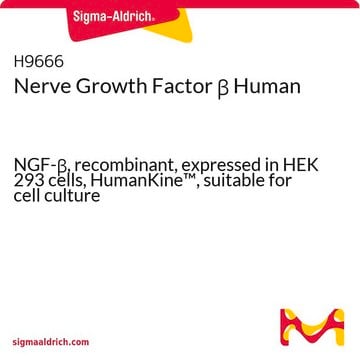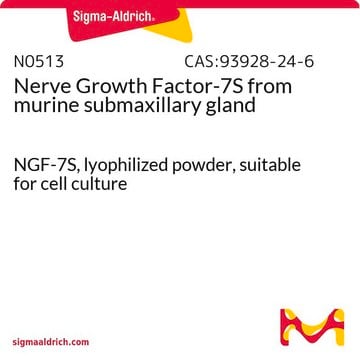N8133
Nerve Growth Factor from Vipera lebetina venom
lyophilized powder, suitable for cell culture
About This Item
Recommended Products
product name
Nerve Growth Factor from Vipera lebetina venom, NGF, lyophilized powder, suitable for cell culture
biological source
Vipera Lebetina
Quality Level
form
lyophilized powder
potency
0.2-20 μg/mL ED50/EC50
quality
endotoxin tested
mol wt
protein 32.5 kDa
packaging
pkg of 0.1 mg
technique(s)
cell culture | mammalian: suitable
impurities
<10 EU/vial
color
white to off-white
UniProt accession no.
storage temp.
−20°C
Physical form
Preparation Note
Analysis Note
Storage Class Code
11 - Combustible Solids
WGK
WGK 3
Flash Point(F)
Not applicable
Flash Point(C)
Not applicable
Personal Protective Equipment
Certificates of Analysis (COA)
Search for Certificates of Analysis (COA) by entering the products Lot/Batch Number. Lot and Batch Numbers can be found on a product’s label following the words ‘Lot’ or ‘Batch’.
Already Own This Product?
Find documentation for the products that you have recently purchased in the Document Library.
Customers Also Viewed
Our team of scientists has experience in all areas of research including Life Science, Material Science, Chemical Synthesis, Chromatography, Analytical and many others.
Contact Technical Service







